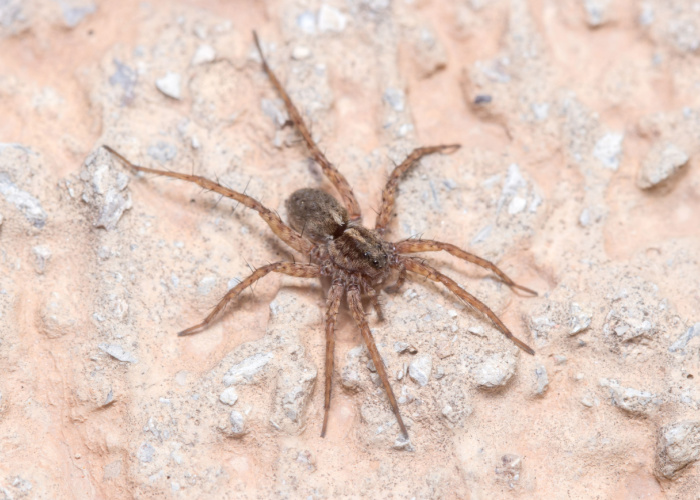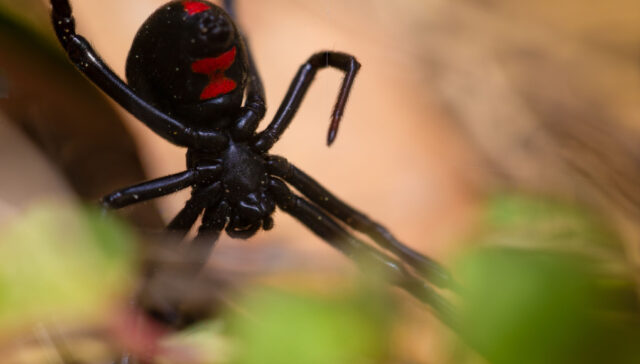
Table of Contents
Oh no! My dog ate a spider! What should I do?
I get that it may be your first time catching your dog in the process of eating the creature.
Or it could be that there are telling signs that your dog ate one.
But believe it or not, it’s actually a common incident for dogs to eat spiders.
And the more you know about what to do about this situation, the less you’ll panic and scramble to find answers.
So for this blog, I’m here to answer your question, “What happens if my dog eats a spider?”
We’ll talk about the following topics in this article:
- What spiders can harm your dog?
- Why do dogs eat spiders?
- What to do if your dog eats a spider?
- Signs and symptoms of spider-eating incidents
Is your dog in trouble if it accidentally eats a spider?
Let’s find out!
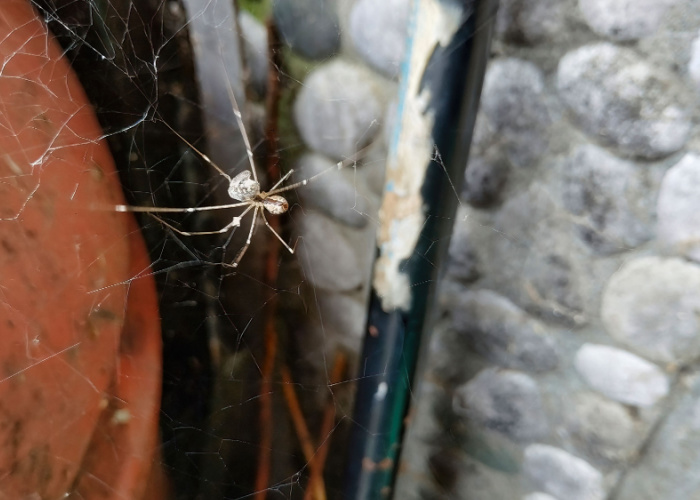
My Dog Ate a Spider: Should I Be Worried?
Dan, my dog ate a spider. Should I be worried about it?
And the short answer is no.
Don’t worry if your dog eats a spider!
This is because there are thousands upon thousands of spider species across the globe.
But among them, only a handful of spider species can really harm your dogs.
In fact, even ordinary house spiders won’t cause any harm to dogs.
What you really need to look out for are the spider bites on dogs instead.
Are Spiders Poisonous or Venomous?
A misconception that people have about spiders is how they mistake poisonous creatures for venomous ones.
And this could go both ways, too, with people mistaking venomous animals as poisonous instead.
So what’s the difference between the two?
It’s in how these animals deliver their toxins to their targets.
Venomous animals inject toxins into their target.
This could be through a bite, sting, or fangs, as long as the animals inject toxins into their systems.
However, poisonous creatures deliver their toxins through any other means except injection.
It could be that their toxins were meant to be inhaled, ingested, or absorbed through the skin.
If that’s the case, are spiders poisonous or venomous creatures?
Spiders—if they ever use toxins—are venomous creatures.
Entomologist Richard Jones explained that spiders have jack-knife fangs called chelicerae.
Mr. Jones further explains:
All spiders (except those in the obscure family Uloboridae) inject venom through the hollow fangs to kill their prey.
That being said, most of the spider species in the world are non-venomous.
Rick Vetter from the University of California confirmed that it’s estimated that less than one percent of the 50,000 spider species are venomous.
Conversely, according to Ken Holscher from Iowa State University:
There are no poisonous spiders. However, as far as I know, all spiders are venomous.
What Happens If My Dog Eats a Spider?
What happens if my dog eats a spider?
The quick answer to that is nothing.
Your dog will digest the spider and simply carry on with its day.
Spiders are not poisonous creatures, meaning they’re safe for dogs to eat.
If your dog accidentally eats house spiders, rest assured that you’re not putting your dog at any health risks or complications.
But how about venomous spiders? Can the spider’s venoms harm my dog as it eats the spider?
As it turns out, the acids from the digestive tract will react with the venom to denature the toxic proteins.
More than just being safe to eat, spiders are nutritious!
Believe it or not, spiders are packed with protein, zinc, and folic acid.
So can dogs eat spiders?
Yes, they can.
But that doesn’t mean it should.
Just because dogs can eat spiders doesn’t mean you would let your dog go out on a foraging quest for spiders.
It can be that your dog ingested a spider with strong potent venom.
And that venom didn’t break down in your dog’s tummy.
Further, wild spiders—spiders that weren’t farmed for food—are unsanitary.
And then, there’s also the incident of spiders biting dogs that you need to watch out the most.
Spider-biting incidents are far more dangerous than dogs eating spiders.
All of these venom risks can make your dog sick.
The worst is that some venom leads to a near-death experience and casualties.
That’s why we don’t recommend letting your pet do as it pleases in eating spiders.
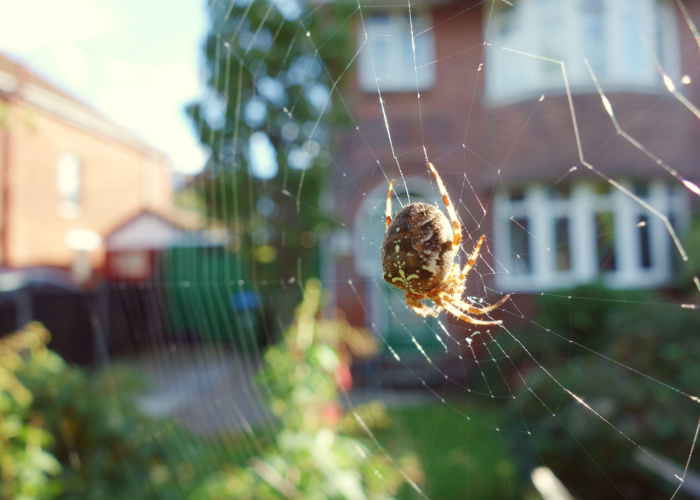
What To Do If Your Dog Ate a Spider
Dan, what do I do if my dog ate a spider or got bitten by it?
First, make sure that it’s a spider-related accident.
If you’re now certain that your dog ate a spider or got bitten by one, don’t panic and stay calm.
Instead, phone your veterinarian as soon as possible.
Give details about what happened to your dog and its current condition.
You can also inform your vet whether venomous spiders are known to be living within your area.
The vet will give out instructions on how to give first aid to dogs, so don’t make home remedies yourself.
It will also help if you monitor your dog’s condition.
Check if your dog shows any signs of symptoms or abnormal behaviors (which we'll tackle next.)
Lastly, take your dog to an animal hospital when the situation worsens.
RELATED: Telehealth for Pets: 24/7 Vet Guidance
Watch Out for These Spider-Induced Symptoms!
So dogs eating spiders can or can't be that bad.
And spider bites on dogs are fatal too!
However, both of these incidents require you to give immediate medical assistance to your dog.
But the thing is, you can’t treat spider bites or ingestion if you don’t know that a spider caused it in the first place.
Unless you know that venomous spiders are in your area, you have no idea that a spider may have caused your dog’s suffering.
That’s why it’s essential to know and detect the earliest signs of any venomous spider incident with your dogs.
Here are some signs and symptoms that indicate that your dog has ingested a possibly venomous spider or got bitten by one.
- Muscle twitching and convulsions
- Vomiting
- Localized swelling near and on the bite zone
- Bruises and inflammation in the affected area
- Incapacitation
- Tissue necrosis at the bite zone
- Seizures or tremors
- Abnormal heart rate and palpitations
- Severe Fever
- Signs of difficulty in breathing, like panting or wheezing
- Excess drooling
RELATED: 9 Emergency Dog Health Conditions That Cannot Be Delayed
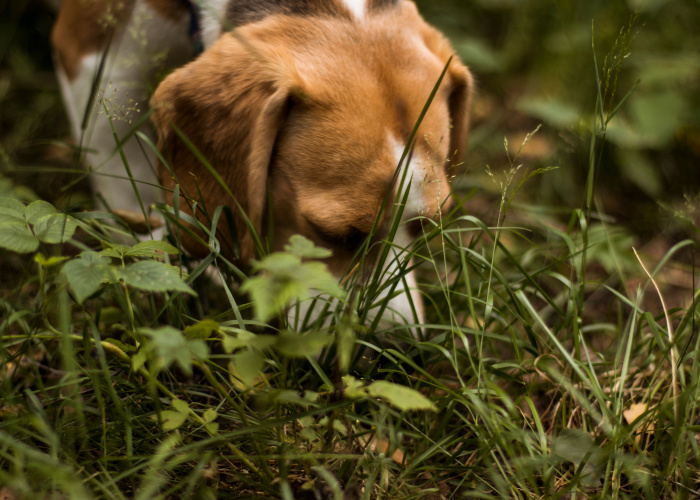
Why Did My Dog Eat a Spider?
Now, you’re probably asking, “Why did my dog eat a spider?”
And that’s a great and valid question since we all know that dogs are not insectivores.
Spiders are not their main diet, so what gives?
It turns out there are good explanations for this behavior.
Here are three reasons why dogs would eat a spider.
Some Spiders are Colorful
Yes, dogs are colorblind because they cannot see tint colors of red and green.
But that doesn’t mean that they can’t entirely perceive colors.
Quite the opposite, dogs are attracted to objects with saturated colors of blue and yellow.
And more often than not, venomous spiders have these hues on them as warning colors.
So the moment a dog sees these arachnids, it may not hesitate to interact with them and potentially eat them.
Your Dog Notices Spider Movement
Dogs are naturally curious fellows.
They love to explore, discover, and wander about in the open.
Because of their curiosity, dogs are definitely attracted to movements, no matter how minute their motions are.
So it makes sense for your dog to take an interest in spiders.
To dogs, they probably see them as a toy or as prey, which kicks their drive to eat them.
Dogs Can Pick Up Spider Odor
We all know that dogs are strong sniffing creatures.
Their 300 million smell receptors in their nose help pick up scents that we can’t, including spider scents.
So if your dog picks up a particular scent from a direction, it will immediately arouse your dog’s curiosity.
Most likely, they would want to check out the smell for itself.
The scent could be anything, but if it came from a spider, your dog would pry more and interact with the creature.
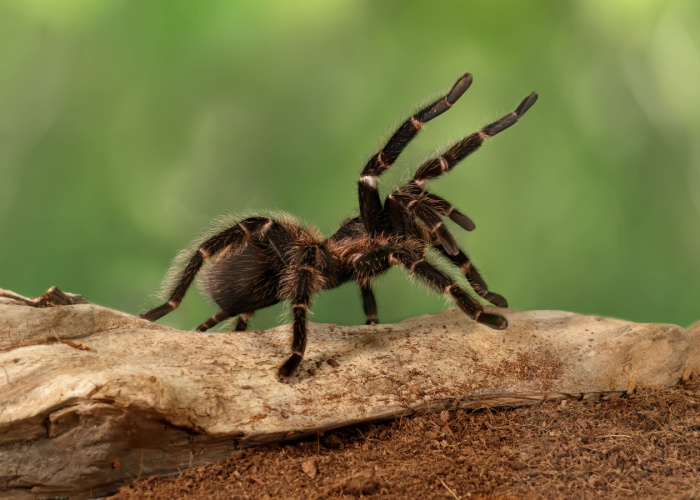
What Spider Can Harm Your Dog?
A lot of spider species are practically harmless to dogs.
Even those spiders that do bite don’t have medically significant potent venom to cause sickness to your dogs.
That being said, venomous spiders can inflict serious harm on your dogs.
Whether it’s by eating them or getting bitten by these species, every encounter with them puts your dog at high risk from the venoms.
The two species that you need to look out for are Black Widow and Brown Recluse.
These spider species deal the most harm to your dog, potentially killing them too.
Black Widow Spider
The black widow spider is one of the venomous spider species in the world, and it’s a common spider throughout the US.
While the male spider is entirely harmless, you need to watch for the female spider instead.
The females are approximately one-inch-long black spiders with the iconic orange or hourglass shape on their abdomen.
A bite from them can prove to be fatal to your dogs.
Dr. Karen Becker, DVM, from Mercola Healthy Pets explains that:
The widow's venom is a potent neurotoxin that triggers a massive release of acetylcholine and norepinephrine in a dog's body, causing muscle spasms and paralysis.
Brown Recluse Spider
The Brown recluse is another venomous spider that’s found in the US, but specifically in the southern states.
This creature is 8 to 13 millimeters long, has an upper body shaped like a violin, and has long legs.
Its venom concoction is extremely potent as it causes tissue damage and even necrosis to your dog’s skin.
A brown recluse’s venom is hemotoxic, which means it can potentially cause organ degeneration and damage to tissues.
It could be potent enough to survive inside the dog’s stomach during ingestion.
So when the venom enters the bloodstream, it will destroy blood cells and cause organ failure in dogs.
My Dog Ate a Spider: Final Thoughts
My dog ate a spider! Should I be worried?
Unless your dog encountered a black widow or brown recluse, you can rest easy knowing that your dog is safe.
But then again, how will you know the type of spider your dog ate?
Or the better question would be, how will you know that it’s a spider that your dog ate in the first place?
That’s why it’s important to check your dog’s condition and immediately place a call to your local vet for a consultation.
Continue to monitor your dog’s condition and watch out for signs and symptoms that would suggest an urgent visit to the hospital.
If you found this blog helpful, you might want to check out related articles about other things that your dog might accidentally eat.


